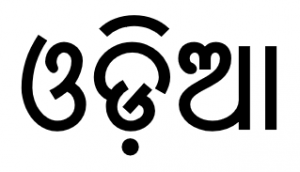Language/Odia/Grammar/Questions
Hi Odia learners! 😊
In this lesson, we will learn about questions in Odia language. Asking questions is an essential part of communication. Let's dive into the topic and explore the grammar rules and cultural aspects of Odia questions.
Once you've mastered this lesson, take a look at these related pages: Pronouns, Negation, How to Use Have & Give your Opinion.
Basic question formation[edit | edit source]
In Odia, a basic question is formed by adding କି (ki) at the end of a sentence. କି is equivalent to "whether" or "if" in English. Here is an example:
| Odia | Pronunciation | English |
|---|---|---|
| ତୁମେ ଅଛେ? କି | tume achhe? ki | Are you there? |
So, in the above example, ତୁମେ ଅଛେ? (tume achhe?) means "You are there" and adding କି (ki) to the end makes it a question.
Types of questions[edit | edit source]
Yes/No questions[edit | edit source]
The above example is an example of a yes/no question, which is a question that can be answered with a simple "yes" or "no". In Odia, yes/no questions are formed by adding କି (ki) to the end of a sentence. Here are some more examples:
| Odia | Pronunciation | English |
|---|---|---|
| ତୁମେ ସେଠାଏ ଗଳେ? କି | tume sethaae gale? ki | Did you go there? |
| ତୋମର ବାପା ଅସୁଭ ଅଭିଲେଖ ଲେଉଥିଲା? କି | tomara baapa asubha abhilekha leuthila? ki | Did your father take the wrong document? |
Notice that in both cases above, the question is formed by adding କି (ki).
Wh- questions[edit | edit source]
Wh- questions are questions that ask for specific information, such as who, what, where, when, why, and how. In Odia, these questions are formed slightly differently than yes/no questions. Here are some examples:
| Odia | Pronunciation | English |
|---|---|---|
| ତୁମେ କେଉଁଠେ ଥିବା? | tume keuṭhe thibaa? | Where are you? |
| କାରଣ ତୁମେ ଖାଇ ପାରେଥିବା? | kaaraṇa tume khaai paarethibaa? | Why did you eat? |
| ତୁମେ କେମିତି ଯାଉଥିଲେ? | tume kemit̪i jaauthile? | How did you go? |
Notice that in wh- questions, the interrogative word (such as କେମିତି kemit̪i or କାରଣ kaarana) comes at the beginning of the sentence.
Practice[edit | edit source]
Let's practice some more by reading this conversation:
- Person 1: ନୀଳ ବିଷୟରେ ତୁମେ କେହିଁ ଭାବୁଥିବେ? (niḷa biṣayare tume kehin̐ bhābuthibe? - What did you think about the movie?)
- Person 2: ସେ ଖରାପ ଛିଲା। (se kharap chhila - It was bad.)
Culture and interesting facts[edit | edit source]
In Odisha, it is customary to greet people by asking "ଆପଣ କେମିତି ଆଛନ୍ତି?" (apaṇa kemit̪i achhanti? - How are you?). It is a way to show politeness and start a conversation.
If you want to know more about Odia grammar, you can access the Odia Grammar page on Polyglot Club. Remember that the best way to learn a language is to practice with native speakers. You can find native speakers on Polyglot Club and ask them any questions!
Sources[edit | edit source]
- odia grammar questions & answers for quizzes and worksheets ...
- Odia Grammar MCQ For ASO [March 2022 - Part13]
- ODIA GRAMMAR PYQ (2,222 MCQ + 75 Mock Test - All Odisha ...
➡ If you have any questions, please ask them in the comments section below.
➡ Feel free to edit this wiki page if you think it can be improved. 😎
Videos[edit | edit source]
ASO 2019 Odia Grammar Questions Answer solution I ASO Exam ...[edit | edit source]
Other Lessons[edit | edit source]
- How to Use Be
- Negation
- Pronouns
- Adjectives
- How to Use Have
- Give your Opinion
- Conditional Mood
- Plurals

